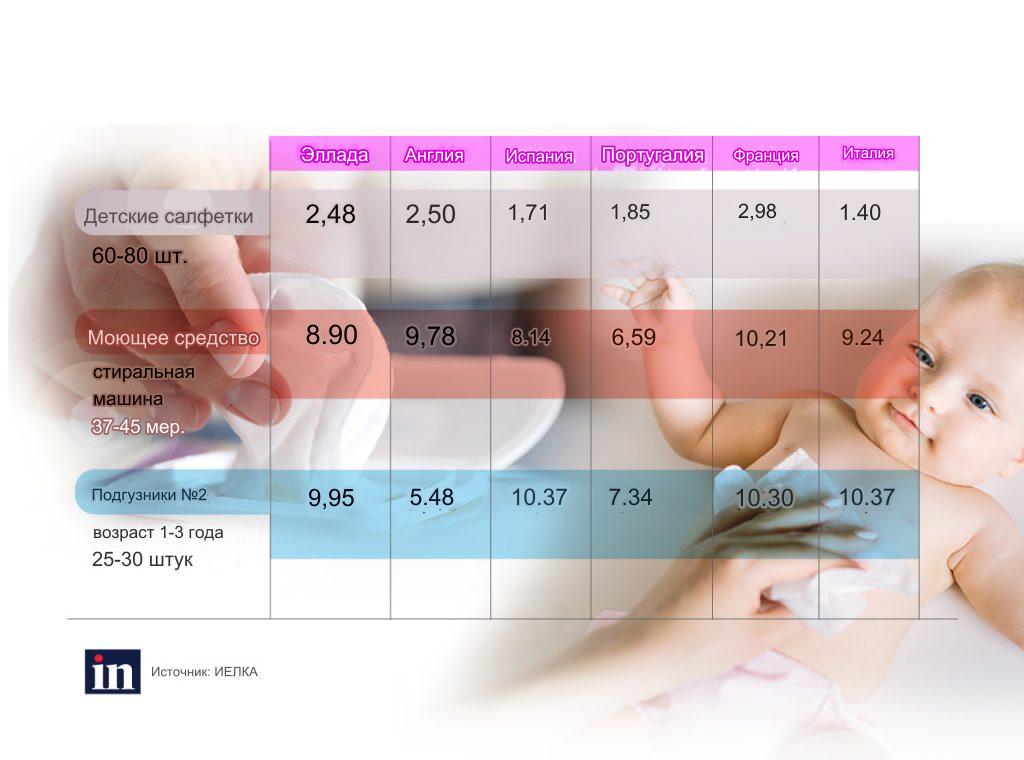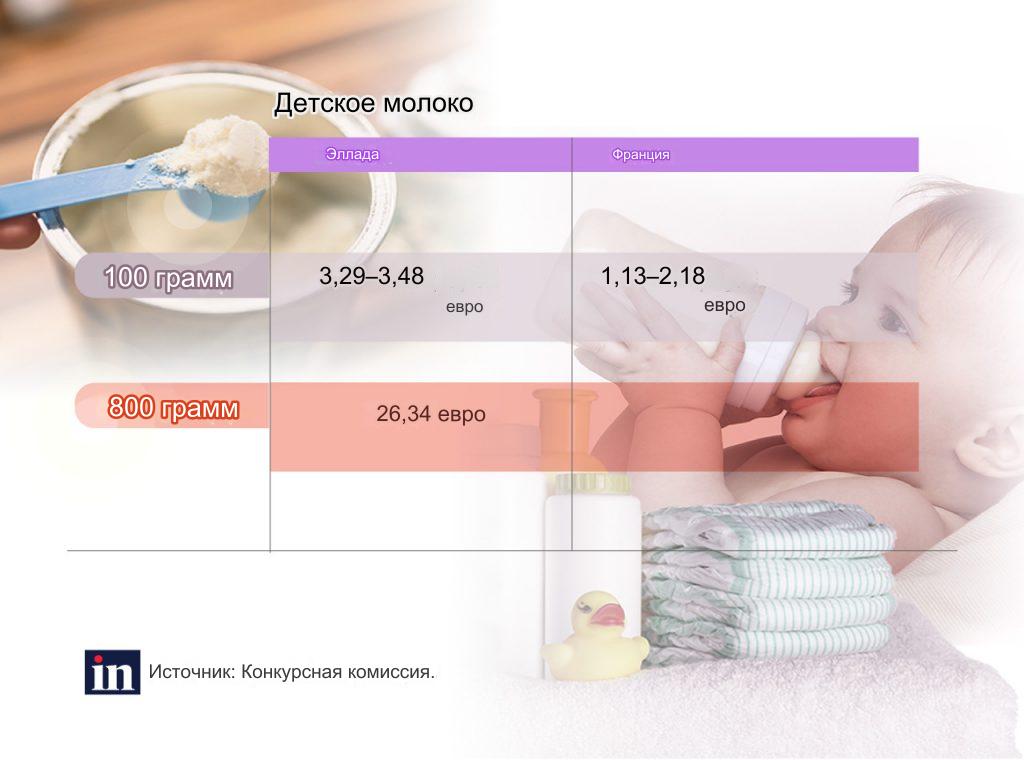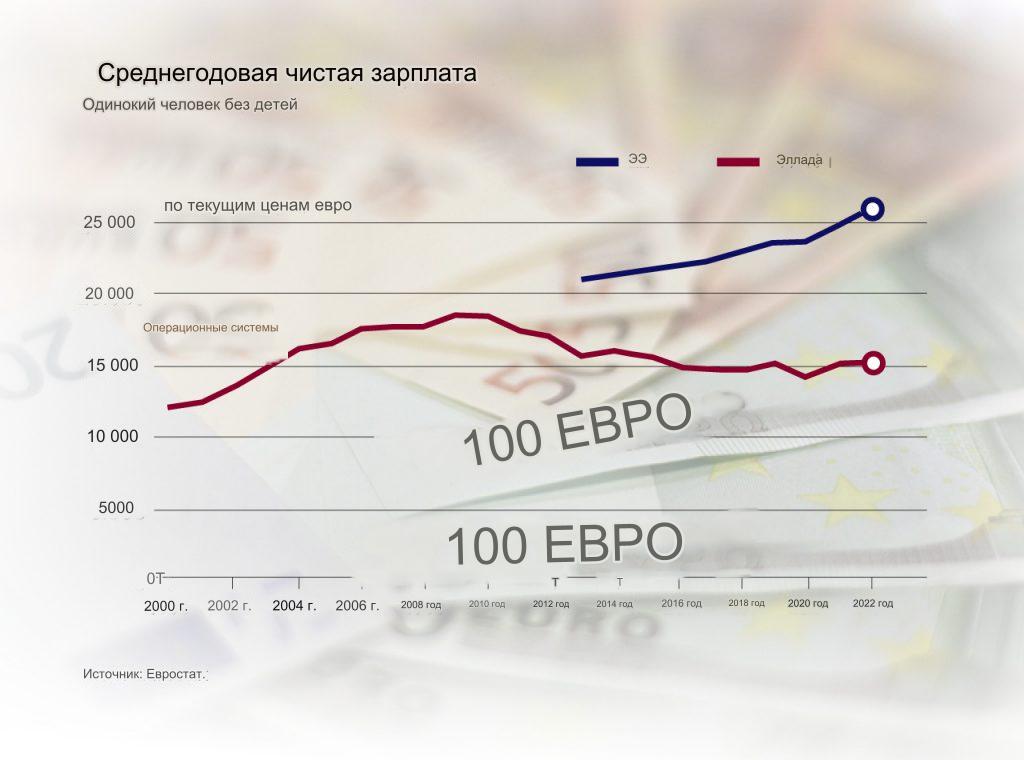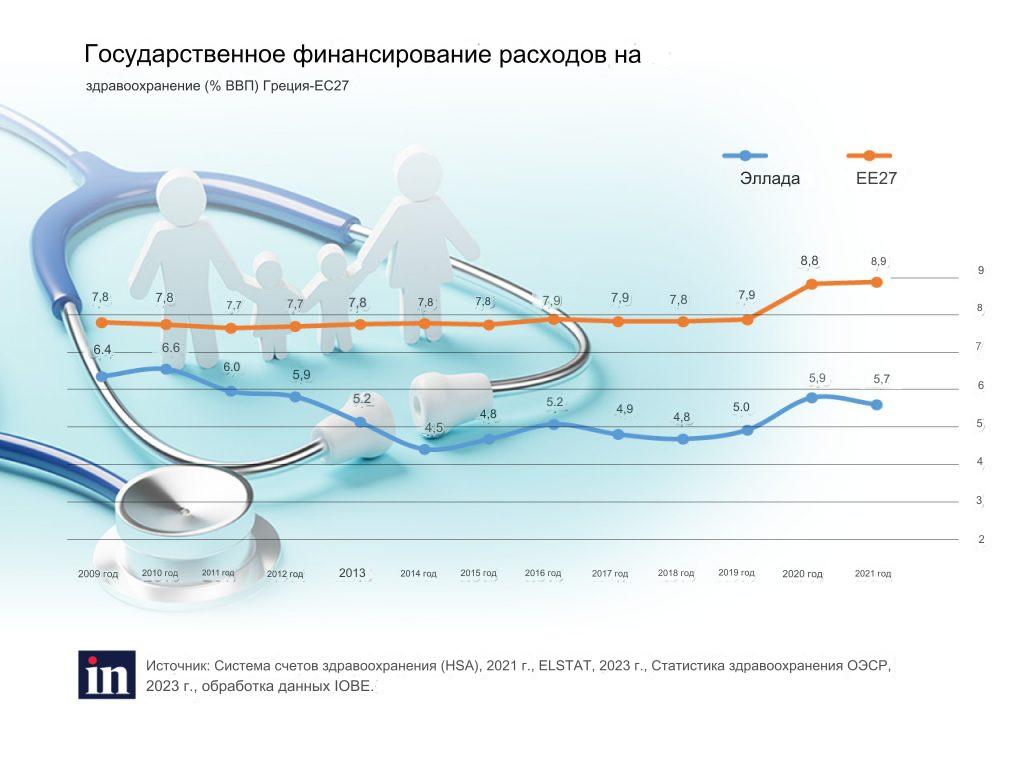Created by DELL E3
The cost of raising a child in Greece is soaring, while the working-age population is expected to continue to decline in the coming years, according to the International Monetary Fund.
Negative demographic prospects, according to experts, could reduce the potential growth of the Greek economy by about ½ percentage point.
The working-age population has fallen by about 0.7% annually over the past decade and is projected to continue to decline by about 1% per year until 2030.
Alas, so far the policy pursued by the government in terms of issuing benefits has not resulted in a “demographic miracle”, but has only led to an increase in private spending on health care. Added to this is high inflation, which remains above 3.5%, and food prices continue to rise, exceeding 20%. Greeks have the second highest per capita income in Europe based on purchasing power.
Hellas also has the 6th highest indirect tax rate (as a percentage of total tax revenue) among 27 countries EUand food inflation is more than 10%, which is the highest.
IELKA data: how much does it cost parents to raise a child?
According to a comparative study of prices in our country, baby food (milk) was sold up to 213% more expensive than in other countries of the European Union.

The gap between wages in Greece and Europe
In 2013, the difference was 11,561 euros, that is, according to Eurostat, the average salary in Greece was 17,358 euros, and in the EU – 28,919.
The figures reflect the following depressing trend: for every one birth there are two deaths. Which is extinguishing optimism about the prospects for the Greek economy. Demographics continue to worsen as couples are hesitant to start families because wages are low and the cost of living is high.
In Greece, out of 57.4% of GDP in government spending, 31.7% is social spending, of which 20.6% is pensions.
The cost of housing is also a negative factor: according to European data, adults in the European Union left their parents’ home in 2022 at the age of 26.4 years. In Greece they stay 4 years longer and become independent at an average age of 30.7 years.

In Greece, out of 57.4% of GDP, government spending accounts for 31.7% of social support for the population, with 20.6% being pensions and benefits. An increase in social subsidies, according to public opinion polls, is an urgent demand of civil society.
According to the statistics office, social protection spending in 2021 amounted to 48.6 billion euros, showing an increase of 0.9% compared to 2020. This is about old age benefits expenseswhich for 2021 amounted to 52.2% of total social protection expenditures (a decrease of 1.0% compared to 2020).
Next come sickness benefit expenses, the amount of which in 2021 amounted to 22.2% of total expenses, which is 6.7% more than in 2020. The total amount of expenditures from the state treasury on survivor benefits (widowers) increased, amounting to 9.9%, which is 3.8% more than in 2020.

Based on an analysis of the figures, the government predicts Budget expenditures for 2024 amount to 2.1 billion euros. We are talking about measures to support families (such as increasing the amount of benefits, reducing tax deductions, etc.). Although social security spending is increased compared to 2023 (EUR 1.5 billion), it is lower compared to, for example, defense spending.
For 2024, the state budget notes another increase in allocations for the implementation of military equipment programs and defense spending in general: the projected budget of the Ministry of National Defense will be 6.1 billion euros. Of this amount, 2.6 billion euros will go to equipment programs (purchase of military equipment and equipment).








More Stories
What to do if attacked by a dog (video)
Greece – a paradise for gourmets
Message from AEK and PAOK fans in defense of Esphigmenou Monastery